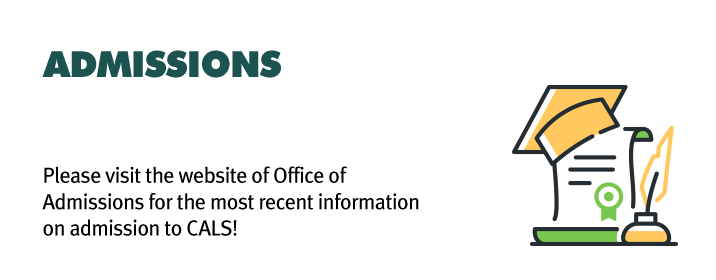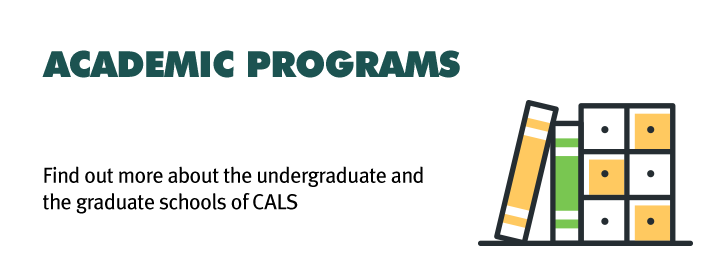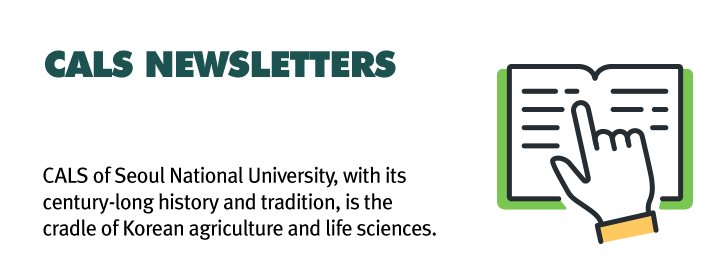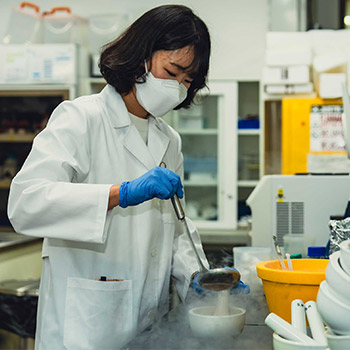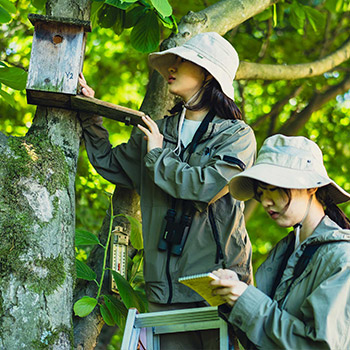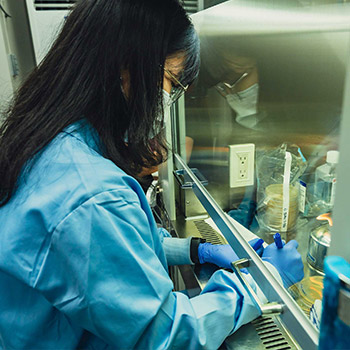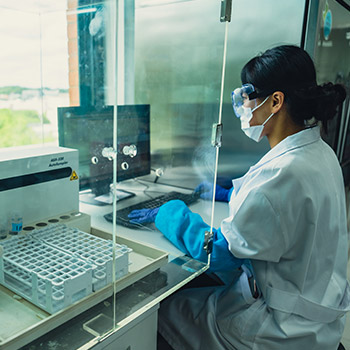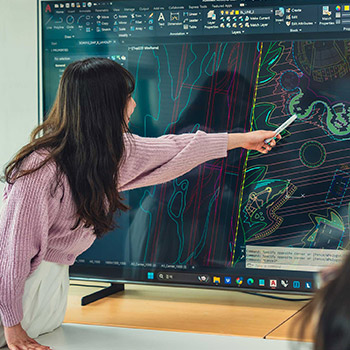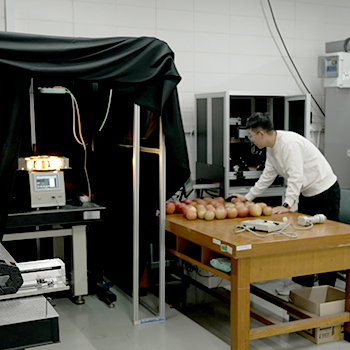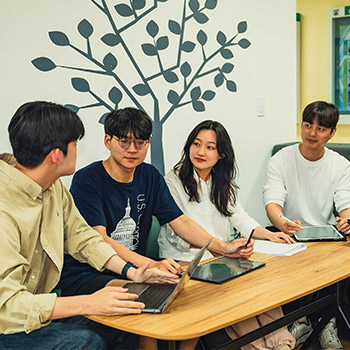Winter Research Fellowship Program 2022 participant interview
Within the College of Agriculture and Life Sciences(CALS), undergraduate research students are selected to work in the labs of professors each semester, allowing undergraduate students to participate in hands-on research activities during the vacation. The program is ideal for undergraduates who want to go on to graduate school, or for students who want to apply their studies to research, and is a signature research curriculum in the CALS that is highly sought after by undergraduates. This month, CALS PRESS interviewed an undergraduate student who participated in the CALS Research Fellowship Program during the winter and winter breaks of January and February 2022 to find out how the program works and which undergraduate students are best suited for it.
ᅠ
1. Please introduce yourself briefly.
ᅠ
: Hello, I'm Gong Shinhyuk, a 19th year majoring in Crop Science and Biotechnology. In the winter of 2022, I was an undergraduate research student in lab of Professor Yang Taejin in the Department of Plant Production Science. Proffesor Yang's lab conducts research on functional plants and genomics.
ᅠ
2. What kind of research did you do as an undergraduate research student?
ᅠ
: First of all, Proffesor Yang, whose lab I worked in as an undergraduate researcher, co-authored a study called 'High-throughput discovery of plastid genes causing albino phenotypes in ornamental chimeric plants', which is a pioneer study in the field of 'chimeric plants', which is starting to be studied recently. As an undergraduate researcher, I conducted and wrote a report on 'Phylogenetic study of plants in the genus Hydrangea using bioinformatics technology'. The study involved analyzing the genetic information of chimeric plants with a coding program, then classifying the genetic information and creating a phylogenetic tree through a phylogenetic analysis process. In the process of creating the phylogenetic tree, I used programs such as MEGA X, BioPython, and MAFFT.
ᅠ
3. Why did you apply to be an undergraduate research student? What did you hope to gain from being an undergraduate research student?
ᅠ
: Basically, I applied because I knew I wanted to go to that lab, so I wanted to experience the lab beforehand and find out what kind of study and knowledge I would need before going to graduate school. Also, I thought there was more knowledge to be gained by doing research in addition to the academic knowledge of my major field that I had learned so far. Many students do undergraduate research students twice, once to learn about research in graduate school, and the second time to write their senior thesis in most cases. For me, last year's undergraduate research student was my first participation, and I applied to get a better understanding of research.
ᅠ
4. So, what are your plans for the second Research Fellowship Program?
ᅠ
: I know that students who are interested in research and going to graduate school gain experience by participating in the Research Fellowship Program and Creative Research Program among the research-related activities conducted by the CALS. The Research Fellowship Program is conducted every semester, and the Creative Research Program is conducted only once every summer vacation. This semester, I will participate in Research Fellowship Program but not in Creative Research Program. My next undergraduate research student activity will be in the same lab as before, and for my senior thesis, I'll probably go to the lab of the professor who mentors my thesis writing course at the CALS. I guess the research topic will also depend on the professor I am assigned to.
ᅠ
5. What have been the most interesting and most challenging aspects of being an undergraduate research student?
ᅠ
: The most exciting experience is definitely when the results of an experiment come out right. It is rare for research results to come out at once, so I think I felt the greatest sense of accomplishment when I got the final results. On the other hand, despite studying a lot and working hard, I felt difficult while conducting research in a field that I had no idea about. I was stuck because I didn't know the concepts involved even though I was researching in a field that was previously unknown to me. However, as a result of steady effort and study, I was able to successfully complete my research, and it is now a very meaningful experience for me.
ᅠ
6. What are your future career plans?
ᅠ
: I'm still vague about my career path after graduate school, but I'm planning to go to graduate school. The reason why I want to go to graduate school is because I want to develop expertise in my field of study, and I like the process of conducting experiments that utilize the fields that I already love, so that I can get hands-on experience without being stuck in academic studies. The field of laboratory research that I conducted this time was also very interesting because it allowed me to do practical studies.
ᅠ
7. What kind of students do you recommend doing undergraduate research and what are the requirements for undergraduate researchers in particular?
ᅠ
: First of all, I would recommend it to students who are thinking about going to graduate school or students who are stuck on writing their senior thesis. Most students are busy during their senior year, so I think it's a good idea to do undergraduate research during the breaks and use the time to work on your thesis. Also, students who have a particular lab that they really want to work in may apply for undergraduate research to impress professors and graduate students before applying to graduate school. Since undergraduate research is an official activity on campus and is on record, it feels more protected than an internship and allows for a more liberating experience. Therefore undergraduate research student would be suitable for students who want to gain experience related to the department but feel internship program is burdensome. However, I think English reading, reading comprehension skills are essential. It is 쟟ecause you often have to look at many past papers or papers from all over the world in full text in the process of researching. I think it was easier for me to do research using papers because there was less pressure on my English skills compared to other skills.


